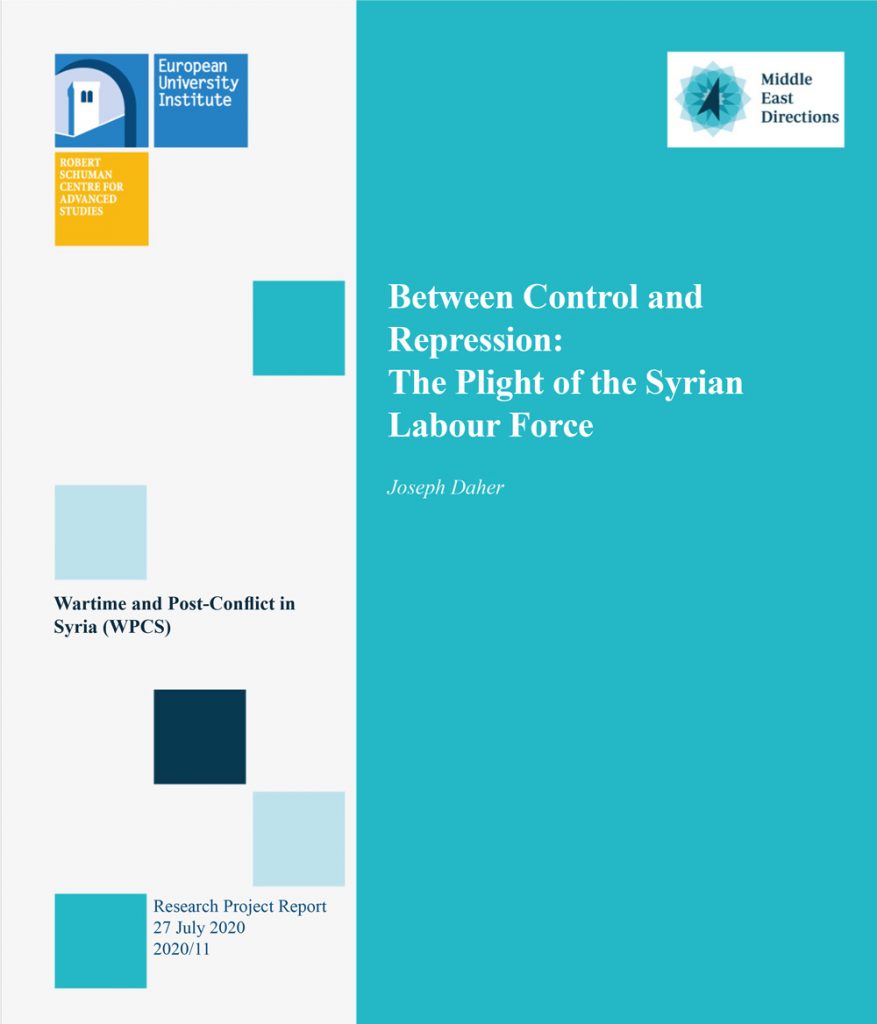 The study seeks to understand the situation of the labour force in Syria and the reasons why a labour movement and collective labour action did not emerge during the uprising or in the years following it. What tools does the Syrian regime use to prevent the emergence of collective action by labourers? What role do the state-affiliated trade unions play in further hindering this development?
The study seeks to understand the situation of the labour force in Syria and the reasons why a labour movement and collective labour action did not emerge during the uprising or in the years following it. What tools does the Syrian regime use to prevent the emergence of collective action by labourers? What role do the state-affiliated trade unions play in further hindering this development?
The paper first provides an overview of the evolution of the labour market during the twenty years of the Bashar al-Assad presidency, with a specific assessment of the situation of women. It then studies the repressive role of workers’ and peasants’ trade unions and professional associations and their transformation into tools of control and mobilisation by the Syrian regime. In this context, the paper examines in particular the General Federation of Trade Union Workers and then isolated cases of labour dissent, notably in certain Russian-managed companies in Syria.



